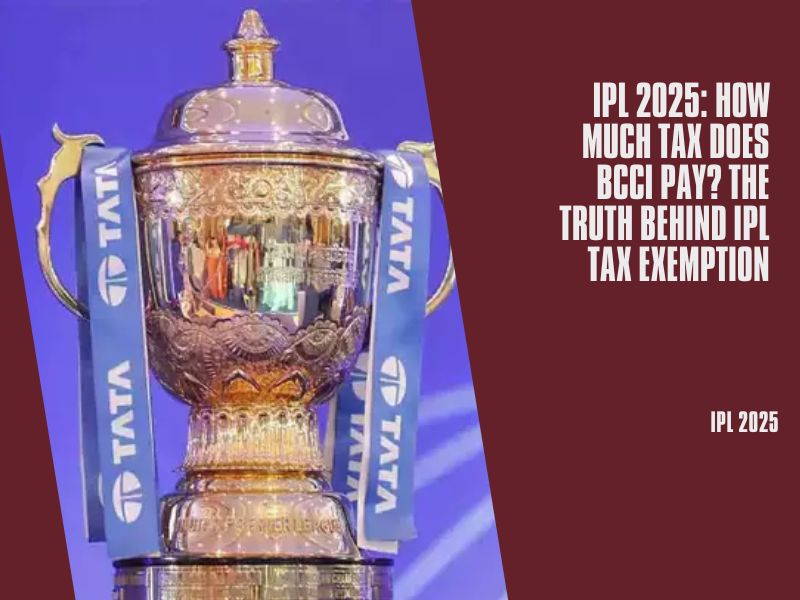The Indian Premier League (IPL) has become one of the richest sports leagues in the world. In 2024, its brand value crossed Rs 1 lakh crore, thanks to a massive Rs 48,000 crore media rights deal. This agreement alone brings in at least Rs 12,000 crore per season. In addition, the 10 IPL teams collectively earned Rs 6,797 crore in 2024. Despite these enormous earnings, the tax policies surrounding IPL are unique and often debated.
Tax Exemption for IPL
Even though IPL generates huge profits, it does not pay direct taxes to the Indian government. The Board of Control for Cricket in India (BCCI) successfully appealed to the Income Tax Appellate Tribunal (ITAT), arguing that IPL promotes cricket and should be classified as a non-profit activity. This ruling has allowed IPL to keep a large portion of its earnings without being subject to corporate taxes.
How the Government Earns from IPL Player Salaries
While BCCI does not pay direct taxes on IPL profits, the Indian government still benefits through tax deductions from player salaries. In the IPL 2025 season, the government earned nearly Rs 90 crore from the mega auction, thanks to Tax Deducted at Source (TDS) on player earnings.
TDS on Indian Players
The government deducts 10% of Indian players’ salaries as TDS. For IPL 2025, the 10 teams spent Rs 383.4 crore on Indian cricketers. This means the tax contribution from Indian players’ salaries was approximately Rs 38.34 crore.
TDS on Foreign Players
Foreign cricketers playing in IPL are taxed at a higher rate of 20%. In IPL 2025, teams spent Rs 255.75 crore on foreign players, leading to a tax collection of about Rs 51.15 crore.
Total Tax Contribution from IPL Salaries
By combining both Indian and foreign player earnings, the Indian government collected around Rs 89.49 crore in taxes from IPL 2025. Even though IPL itself remains tax-exempt, the government benefits significantly from tax deductions on player salaries. With the league’s growing popularity and rising salaries, tax revenues from IPL players are expected to increase in the coming years.
The IPL is not just a cricket tournament—it is a financial powerhouse. Despite being tax-exempt, its impact on government revenue remains significant through player salary taxation. As IPL continues to expand, both player earnings and tax contributions are likely to grow. This ensures that even though the league itself does not pay corporate tax, the Indian government still gains substantial revenue from one of the biggest sporting events in the world.
Visit Home
